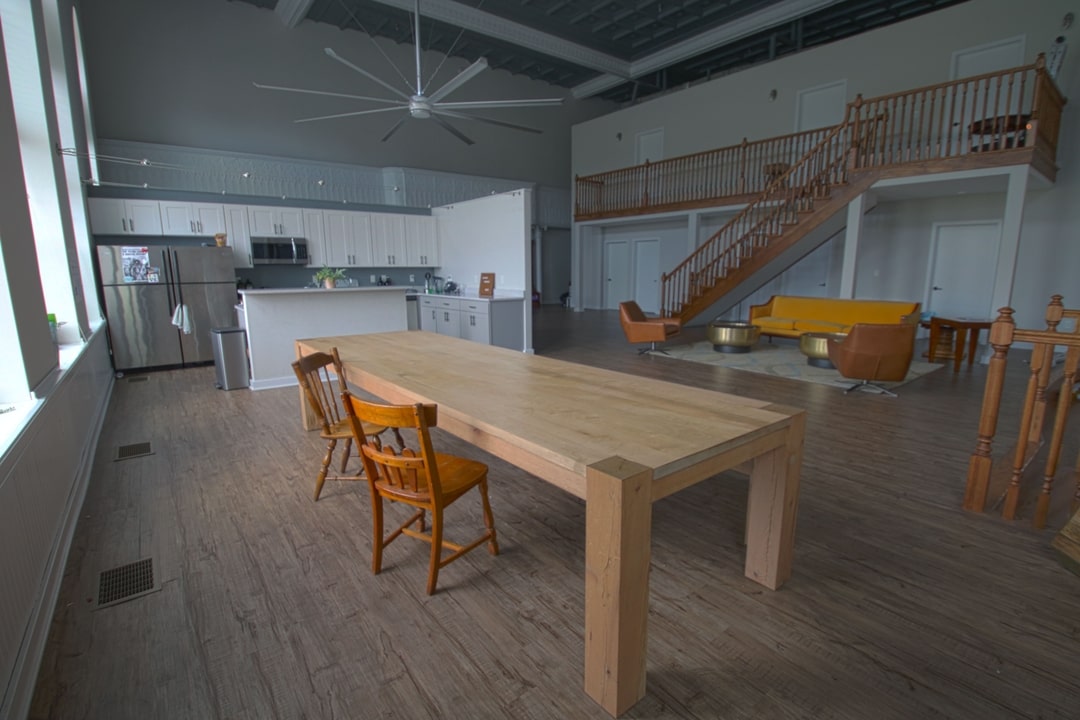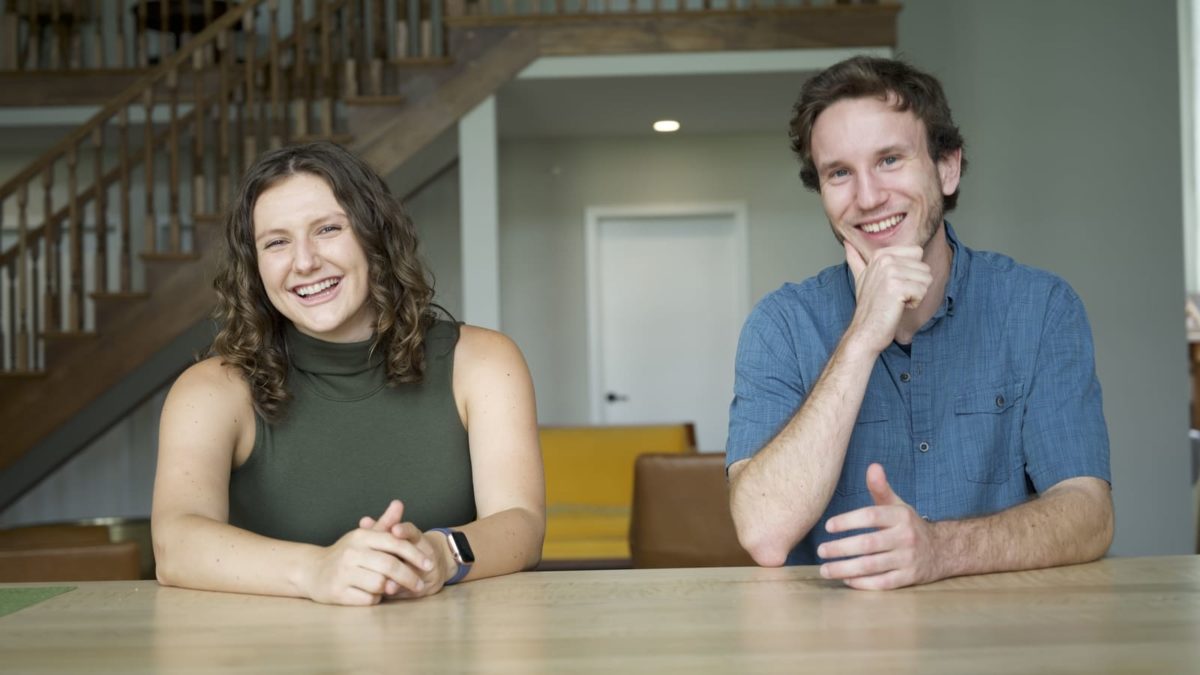A Baltimore accelerator launching this fall is looking to not only nurture new businesses, but house them as well.
Emergence Baltimore is looking to draw entrepreneurs from inside and beyond the city for a live-in accelerator program. For program directors Pava LaPere and Kevin Carter, it’s a chance to offer an immersive program, and an answer to maintaining in-person programming during a pandemic. They’re planning to have the first cohort moved in by mid-September for a three-month program.
The COVID-19 pandemic has meant a shift to online programming for many business-building programs. Many organizers of these programs followed the advice they preach and pivoted to maintain programming, but at the same time Carter said something is missing with virtual programming.
“One of the main things I feel we’ve lost is that sense of a working community,” said Carter, who moved to Baltimore with Venture for America and ran accelerator programming along with LaPere up until recently with Johns Hopkins’ FastForward U. “Especially for entrepreneurs and founders something is inherently missing when you’re not there with people growing and building.”
Rekindling that means forming a cohort that will agree to quarantine together with other founders and accelerator teams for three months. It’ll be at a 4,000-square-foot space called Kindred Hall (strong Harry Potter vibes) which is located on the same former church property as the recently opened Ministry of Brewing in Southeast Baltimore’s Washington Hill neighborhood. Applications are open through Aug. 17, then they’ll look to curate a cohort of five to six early-stage companies that will seek to meet specific milestones.
They’re not putting a specific call out when it comes to the business vertical that a company is working in, but want a group of revenue-driven ventures that can complement each other. LaPere said the sweet spot is founders that have been at it for a few months to a year, and have “taken the leap” to build.
“This is three months of intense work on your venture,” said LaPere, a 2020 RealLIST Connectors honoree who moved to Baltimore as a JHU undergrad and spearheaded entrepreneurial ecosystem building with ventures encouraging students to start companies such as TCO Labs and student accelerator The Hatchery; ecosystem mapping platform EcoMap Technologies; university entrepreneurship coalition Innov8MD; and most recently, a pre-accelerator called AddVenture for student entrepreneurs that spun up over the summer. “If you come in here with an idea for an ecommerce store you better leave with customers.”

For programming, Emergence Baltimore is offering a curriculum that is customized to each founder, and led by folks from the Emergence team in the form of weekly educational sessions and one-on-one sessions to meet OKRs. Since the program is also about living, they’ll get a furnished living space, wellness sessions in yoga and personal training from certified pros who will be onsite, as well as meals.
“The program is founder-focused, not venture focused,” Carter said. “We want to ensure that founders are taking care of themselves.” LaPere added that it’s a “very intense program but also one where you learn what you need to do to take care of yourself at that level of scale and at that level of speed.”
Given the pandemic, health will also be a focus in a wider sense: All of the participants will have to show a negative COVID-19 test, to start. Once they arrive, they’ll follow strict quarantine, as visitors won’t be allowed in and founders will agree to maintain distancing if they leave, as well as avoid situations like bars or parties where they are being exposed to others. (More details here)
“This group of founders is going to be your household for the next few months,” LaPere said.
Given that they are living with others who they haven’t met, this reporter also posed questions about safety for participants once inside the space. The organizers said they’ll use background checking and reference checks. As they’ve developed the program, they’ve been working with other live-in programs — such as D.C.’s Halcyon House — on employing best practices, they said.

The shift in model also brings a contrast to many accelerator programs in that they will charge rent of $1,750 ($1,250 per month plus a $500 community fee). Carter and LaPere said this will fee will seek to cover costs as they launch the program — but they could seek additional funding going forward as they get more cohorts under their belts. (A limited number of $500 scholarships are also being made available for those who demonstrate need)
It’s shows the balance that cofounders must walk: Plenty of experts in entrepreneurship urge charging for a product from the start, but at the same time, plenty of accelerators have offered free programming with an aim toward opening up access. And in contrast to the accelerator model popularized in Silicon Valley, they also aren’t taking equity in the company.
The approach seems particularly of the time, which calls to mind that the initial wave of West Coast accelerators launched during a recession, as well. As they look toward the first cohort, LaPere and Carter think it could be a fit for folks who are graduating college, or students who didn’t want to pay the tuition to go online. They’re aiming to create a program that adds to Baltimore’s community, and also brings folks in and shows off some of the activity that’s happening here.
“If we can fill it in a way that not only supports Baltimore entrepreneurs, but has the potential to bring in talented people, that’s really our approach,” LaPere said.







